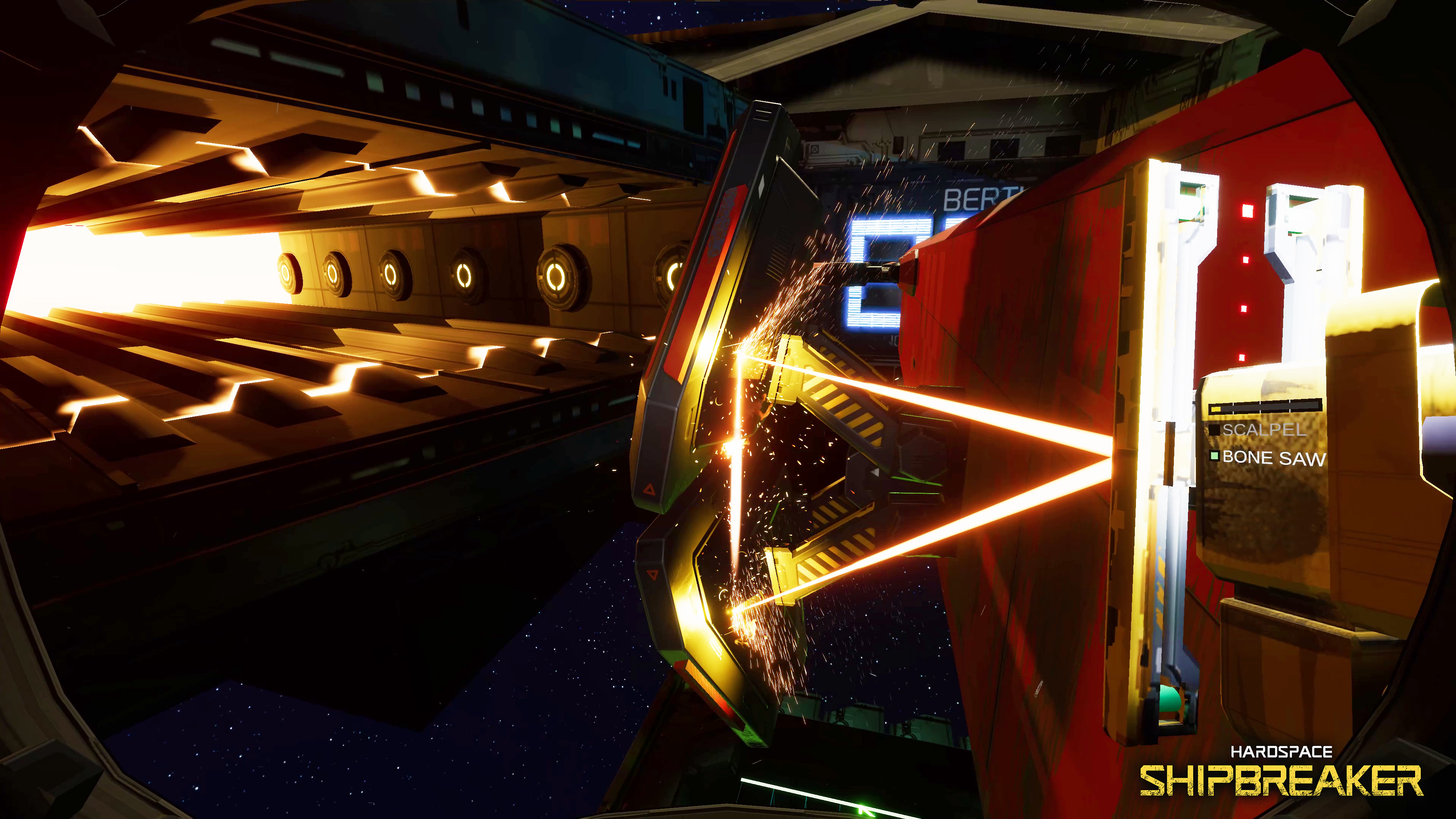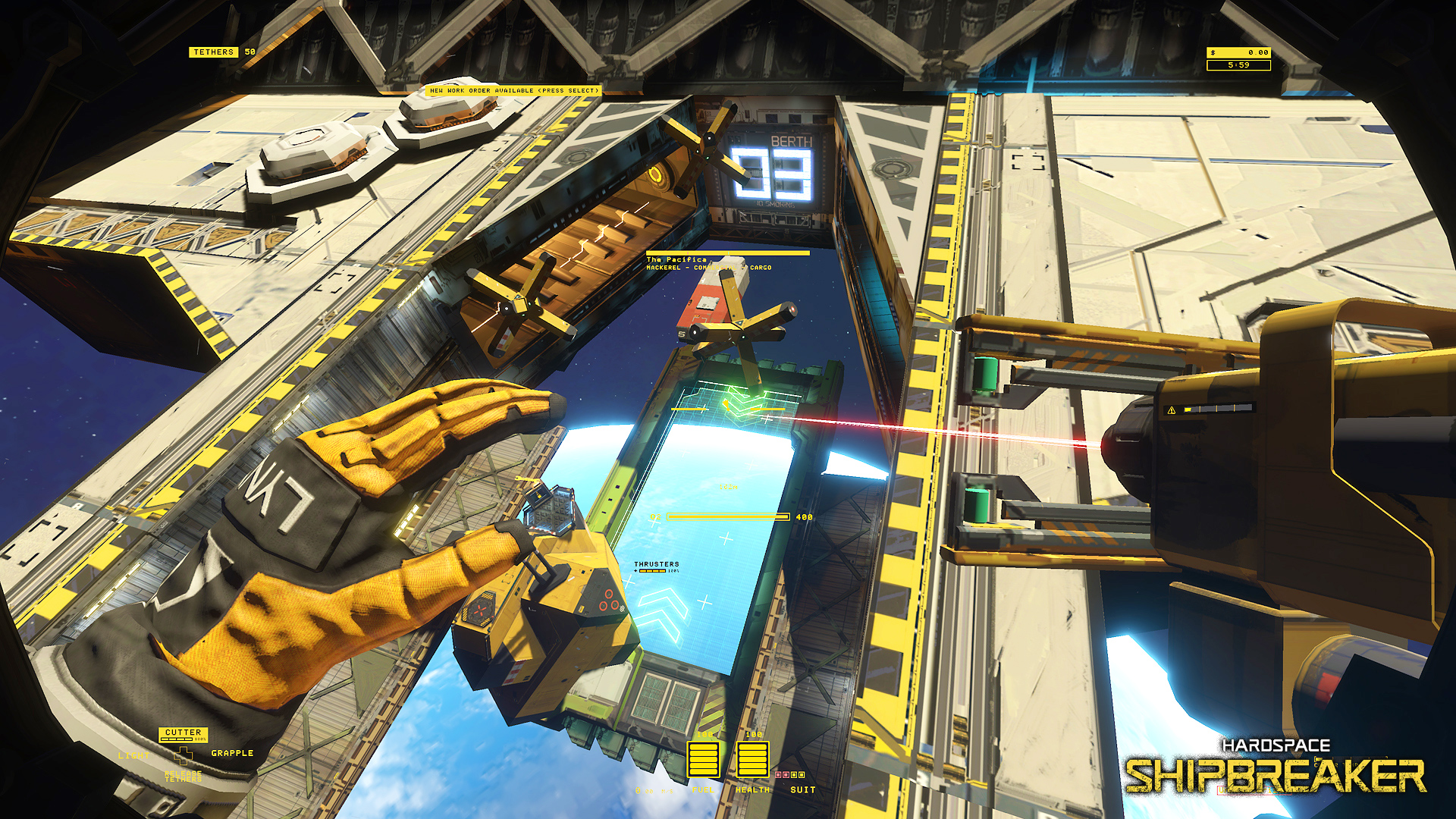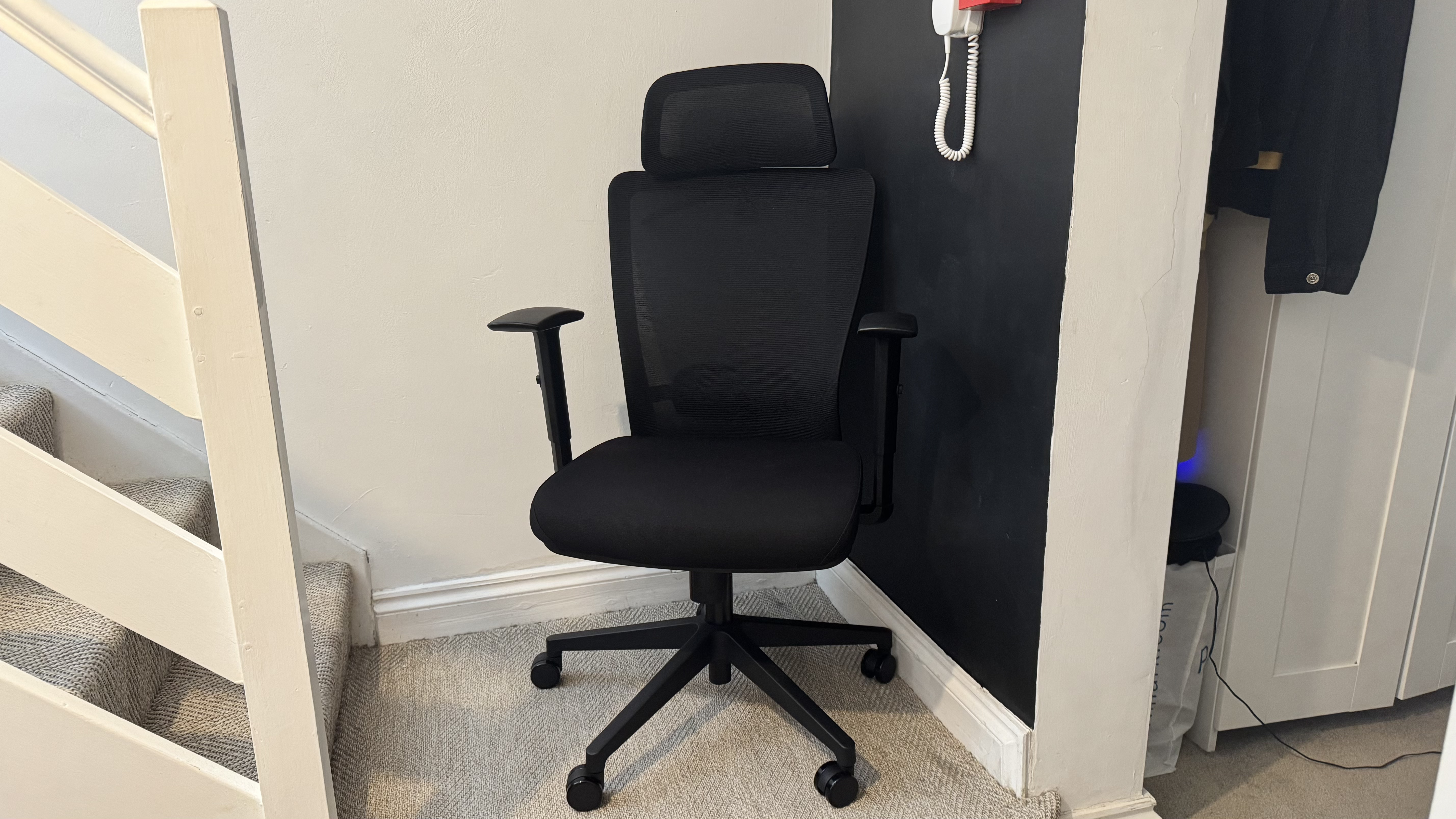Hands-on: Hardspace: Shipbreaker is about the dangerous work of cutting up spaceships
Float in zero G while carving up derelict spaceships for parts in the first-person game coming to Steam Early Access this summer.
I didn't even know I wanted a game about cutting up derelict spaceships for parts until I heard there was one. And now that I've played a brief demo of it, I'm eager for more. It's called Hardspace: Shipbreaker, a first-person spaceship-salvaging game from developer Blackbird Interactive, the folks behind Homeworld: Deserts of Kharak. Check out some video above or here on YouTube.
In Hardspace: Shipbreaker, you're a Cutter—basically, a blue-collar worker at a space station in orbit around Earth. You've gone deep into debt to get this job for a company called Lynx, a massive ship-salvaging corporation. At the start of the game you already owe Lynx about a billion credits, and now you'll now you'll need to slowly chip away at that debt by bidding on salvage jobs, hoping to strip these decommissioned spaceships for valuable parts, cutting out every last bit of worthwhile equipment and material and so you can deposit them into your salvage barge and get paid. Some economy, eh?
It's not as simple as just floating to the side of the ship and cutting your way in—ships have tough outer shells, so you'll need to mostly work from the inside by entering through an airlock or hatch. Then you'll look for vulnerable areas to start cutting—it's almost like you're peeling an onion from the center. It's just not efficient or easy to pull every salvageable item out the ship's airlock, so you'll want to create access points by stripping away panels of the hull from the inside to create an efficient path to haul out your salvage.

You're got a few tools at your disposal, like the tether, which you can use to pull yourself through space—though don't pull yourself too quickly or you might get hurt or damage your space suit, as I routinely did. I was happy to see that Shipbreaker has a sense of humor in this way, unlike so many games in the neighborhood of the simulation genre. After smashing my head against a ships hull, a crack appeared in my facemask and my radio suddenly began picking up country music until my character thumped his helmet with his hand to get back on the Cutter radio frequency.
The Lynx Corporation has a copy of your DNA on file so they'll quickly produce a clone of you, so you can continue working
You can also pull free-floating objects around with your your tether tool, push objects away from you, and link floating objects together to pull them slowly down into your salvage barge below the ship. Other items and materials can be fed into your furnace or processor using your tether tool to earn extra cash.
Your upgradable scanner can give you a look at the inner workings of the ship—cuttable joints, hidden areas, and valuable objects, so you can come up with a plan for your salvage to work your haul around the heavy, unbreakable beams that form the ship's skeleton. These ships are procedurally generated, so you'll encounter different configurations even if you're disassembling the same class of ship. The demo I played only had a single ship, though the developers showed me examples of bigger ships the game will feature. Some of them are quite big, and will take hours of careful cutting to salvage everything.
The cutter tool is fun to use, a plasma beam that you can use for slicing and dicing through joints and weak metal panels. As you might expect, floating around in zero G and slicing up a spaceship with a handheld laser can be extremely hazardous. Ships have fuel lines and coolant lines, and if you cut them by accident there will be explosive consequences. If the ship is still pressurized and filled with oxygen, fires can start and spread. Coolant leaks can freeze valuable materials and cause them to shatter. Sudden ship decompression can cause items to fly off into space before you can cash them in. Explosions and chain reactions can leave your hopes of salvage in utter ruins.
Keep up to date with the most important stories and the best deals, as picked by the PC Gamer team.
And you can die in any number of ways: from explosions, fires, coolant leaks, fast-moving physics objects, and a lack of oxygen. But this isn't a roguelike, don't worry: The Lynx Corporation has a copy of your DNA on file so they'll quickly produce a clone of you, so you can continue working—but they'll charge you for that clone which will eat into your profits. I died several times during the demo, though it was usually while laughing because I'd gotten sloppy with my cutting or forgotten a ship was pressurized while hacking a panel out of the hull. I also forgot to keep an eye on my oxygen a few times and had to make a mad, zero G dash to buy some (yes, Lynx will even charge you for spare oxygen) from my service hub on the space station.

The heart of any ship is the reactor, and once you've cut it free you'll need to act quickly to salvage it. You can't get too close to it or you'll take damage, and you can't take too long to deposit it into your barge before the reactor goes critical. Basically it's like carrying a lit stick of dynamite through a nitroglycerin factory. In zero G. It's pretty harrowing and satisfying when you pull it off.
Equipment and parts aren't the only thing you'll find inside spaceships—some of these of the vessels have been working in our solar system but some have come from much, much further out in deep space. While you're cutting and salvaging, you can collect various data drives, decrypt them, and learn more about the ships you're salvaging as well as fragments of lore about the Hardspace universe.
I wish the demo was longer, but the small taste of Shipbreaker I got made me hungry for more. Even on the small demo ship, there are several different approaches to salvaging and I experienced a number of different entertaining disasters. I'm looking forward to tackling bigger and more complex ships and salvage missions (and working off my debt to Lynx), and I can't wait to learn more about the game, especially how the progression system will work beyond the upgrading of equipment. What happens when (if) I make it out of debt? What's my ultimate goal, and what's the reward for reaching it?
Hardspace: Shipbreaker is published by Focus Home Interactive, and will be coming to Steam Early Access sometime this summer. There will also be a playable demo at PAX East at the end of February, so be sure to check it out if you're planning to attend.

Chris started playing PC games in the 1980s, started writing about them in the early 2000s, and (finally) started getting paid to write about them in the late 2000s. Following a few years as a regular freelancer, PC Gamer hired him in 2014, probably so he'd stop emailing them asking for more work. Chris has a love-hate relationship with survival games and an unhealthy fascination with the inner lives of NPCs. He's also a fan of offbeat simulation games, mods, and ignoring storylines in RPGs so he can make up his own.

